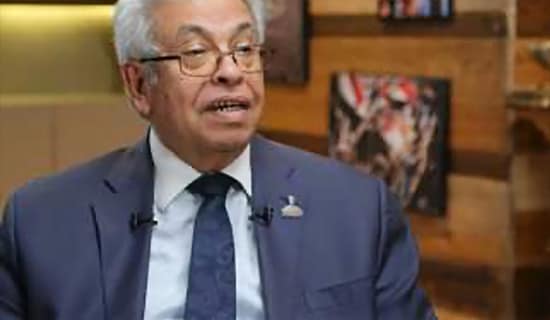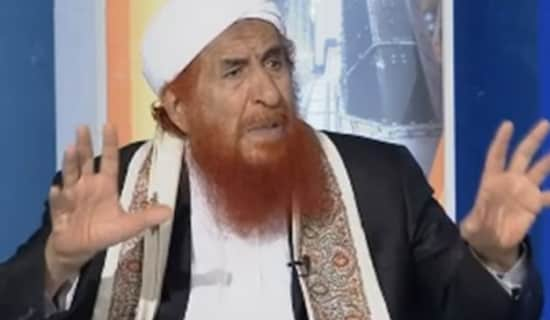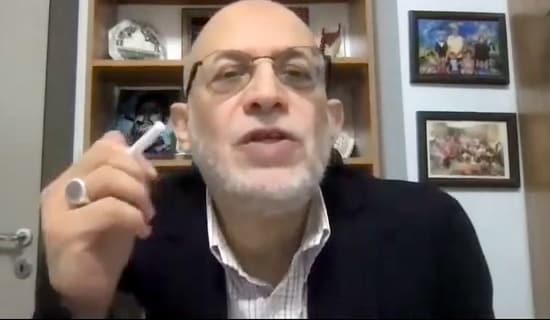On June 6, 2010, Afghan President Hamid Karzai signed a decree, authorizing review of all Taliban prisoners who are detained in various jails managed by the Afghan government. Under the decree, all those prisoners who are being held on the basis of false information or insufficient evidence are to be released. It is not clear if the decree applies to the detention centers managed by the U.S. and NATO troops. As per the presidential order, a committee, headed by the Afghanistan's justice minister, ''shall conduct a comprehensive review of the cases and release those without legally binding evidence of conviction.''[1]
The order to release the Taliban prisoners came after the National Consultative Peace Jirga, held in Kabul June 2-4. The jirga, or meeting of community elders, was organized by the Karzai government to find a way of ending the nine-year Taliban-led militancy in Afghanistan. At the end of three-day deliberations, a resolution adopted by the jirga approved President Karzai's proposals for reconciliation with the armed opposition groups and authorized him to open peace talks with the Taliban militants who could be willing to quit violence and accept the Afghan constitution. As per the jirga's declaration, the Afghan government and the international troops were urged "to take immediate and solid action in freeing from various prisons those detained based on inaccurate information or unsubstantiated allegations."[2]
The move to free Taliban prisoners was welcomed by Mullah Abdul Salam Zaeef, the former Taliban ambassador to Pakistan, who argued that such a step will build trust between the Afghan government and the opposition groups.[3] However, the Karzai government's move to free Taliban prisoners has been severely criticized.
The first criticism of such a move came from Azeeta Rafat, a member of the Wolesi Jirga (lower house of the Afghan parliament) who argued that such a step will signal to the Taliban that the government is weak and will not lead to positive consequences for restoring peace in Afghanistan.[4] Qazi Nazeer Ahmad Hanafi, a political analyst, also accused President Karzai of "victimizing justice" with a decision to release the militants.[5] Amrullah Saleh, who recently resigned, also accused Karzai of adopting a soft policy on the Taliban.[6] Recently, Dr. Sima Samar, the chief of the Afghanistan Independent Human Rights Commission, criticized the proposal to release the prisoners, arguing that many militants who are guilty of human rights could be freed under such a move. According to a report in the Dari-language newspaper Roznama Arman-e-Milli, she said that those militants who helped plan suicide attacks, killed innocent people and burned down schools should not be released.[7]
In an editorial, below, the Dari-language newspaper Arman-e-Milli expresses concerns that such a move in the past to release militants has not yielded positive results and that it might lead to the release of Taliban militants who are backed by the Pakistani military's Inter-Services Intelligence.[8] In another editorial, the Afghanistan Times daily argues that the effective way to restore peace in Afghanistan is by expediting the training and equipping of the Afghan security forces.[9]
Roznama Arman-e-Milli: "Past Experience Shows That Any Time Such Terrorists were Released, They Soon Rejoined Their Terrorist Groups"
"President Hamid Karzai has set up a commission to review the cases of all those detainees arrested on charges of connection with the Taliban, and if they are found not guilty, they would be released because of Karzai's decree issued after the recommendations of the Peace Jirga.
"There are a few points to be taken into considerations about Karzai's decree and the eightharticle [regarding prisoner release] of the Peace Jirga recommendations.
"i) Mr. Karzai should have issued this decree prior to the Peace Jirga, in order to implement justice in Afghanistan. Because anyone who has been arrested on the basis of false information must be released urgently, and the release of such individuals needs no decision from the Peace Jirga.
"ii) Those judicial officials who have arrested and imprisoned innocent people should be questioned seriously; since Afghans have also welcomed the decision to release innocent people, this needs no comment.
"But if the terrorists who are supported by the ISI are to be released under the name of 'releasing innocent people,' it would be a very big crime and a mistake, because Afghans are not going to forgive their killers. Even the president has no authority to forgive them, because terrorists have carried out so many crimes – not only in Kabul but also across the country, and their hands are stained with the blood of innocent people, including women and children.
SUPPORT OUR WORK

"Past experience shows that any time such terrorists were released, they soon rejoined their terrorist groups. For instance, a Taliban commander, Mullah Dastgir beheaded a few policemen in the northern Badghis province before being arrested by police. If he is released, he will rejoin them and strengthen the Taliban lines, and this will not be to the benefit of the people.
"As the previous release of terrorists has brought no achievements, it will have no positive consequences in the future either. And with their release, peace will not be affected. If government officials do not pay attention in this regard, they will be considered great criminals, not only against the people of Afghanistan but against Allah as well."
Afghanistan Times: "All These Years, The International Community Has Not Had a Proper Plan for Training and Equipping the Afghan Police and Army"
"Foreign troops casualties have been increasing year by year in the country, as the conflict intensifies. In the past nine years, support for the presence of foreign troops in Afghanistan has dwindled, especially in the west of Afghanistan. Also, the Afghan people are becoming increasingly dissatisfied with their presence in the country. In this situation, the best way out for the international community is to accelerate the process of training and equipping of the Afghan army and police, and to announce a timeline for the exit of foreign troops from the country.
"When the Taliban regime was overthrown by the U.S. and its allies in 2001, efforts were started for reconstruction and development in the country. The U.S. and a number of other countries have since been involved in training the Afghan army and police. Nine years have passed, and billions of dollars have been spent on the training and equipping of the Afghan police and army, but still they are not able to provide security in a single province without the support of foreign troops.
"Ironically, it is not known when the process of training and equipping the Afghan security forces will end, and when they will be able to provide security and defend against internal and foreign threats without the support of their foreign counterparts. All these important questions remain unanswered, which means that all these years, the international community has not had a proper plan for training and equipping the Afghan police and army.
"It is certain that foreign troops cannot remain in the country permanently, and that they must have a timeline for their presence. From an economic point of view, it is impossible for the U.S. and NATO members to keep their forces in Afghanistan in the long term, because their presence in the country costs billions of dollars annually. But before foreign troops leave the country, they must train and equip the Afghan army and enable it to defend against domestic and foreign troops.
"If foreign troops set a timeline for their presence in the country, it will be helpful in peace talks with dissident groups, including the Taliban. The opposition groups want the withdrawal of foreign troops from the country, and setting a deadline for the presence of foreign troops will be enough to convince them to come to the table of negotiations.
"The reports of increased casualties of foreign troops in Afghanistan are coming along with major unpopularity of their presence among Afghans and their own nations. The foreign troops must set a deadline for their withdrawal. But before they leave the country, it must be ensured that the Afghan police and army are strong enough to provide security on their own."
Endnotes:
[1] Daily Times, Pakistan, June 7, 2010.
[2] http://president.gov.af/Contents/88/Documents/1834/resolution_English.htm, Afghanistan, accessed June 17, 2010.
[3] Wrazpanra Khedmatgar, Afghanistan, June 8, 2010.
[4] Roznama Arman-e-Milli, Afghanistan, June 9, 2010.
[5] Roznama Arman-e-Milli, Afghanistan, June 9, 2010.
[6] MEMRI Special Dispatch No. 3038, "Former Afghanistan Intelligence Chief Says He Quit Because of President Karzai’s 'Soft' Policy on Taliban, Says: 'This Soft Behavior Makes the Enemy’s Intention Even Stronger and Makes the Confidence of Friends Shaky,'" June 15, 2010, Former Afghanistan Intelligence Chief Says He Quit Because of President Karzai's 'Soft' Policy on Taliban, Says: 'This Soft Behavior Makes the Enemy's Intention Even Stronger and Makes the Confidence of Friends Shaky'
[7] Roznama Arman-e-Milli, Afghanistan, June 15, 2010.
[8] Roznama Arman-e-Milli, Afghanistan, June 8, 2010.
[9] Afghanistan Times, Afghanistan, June 6, 2010.




